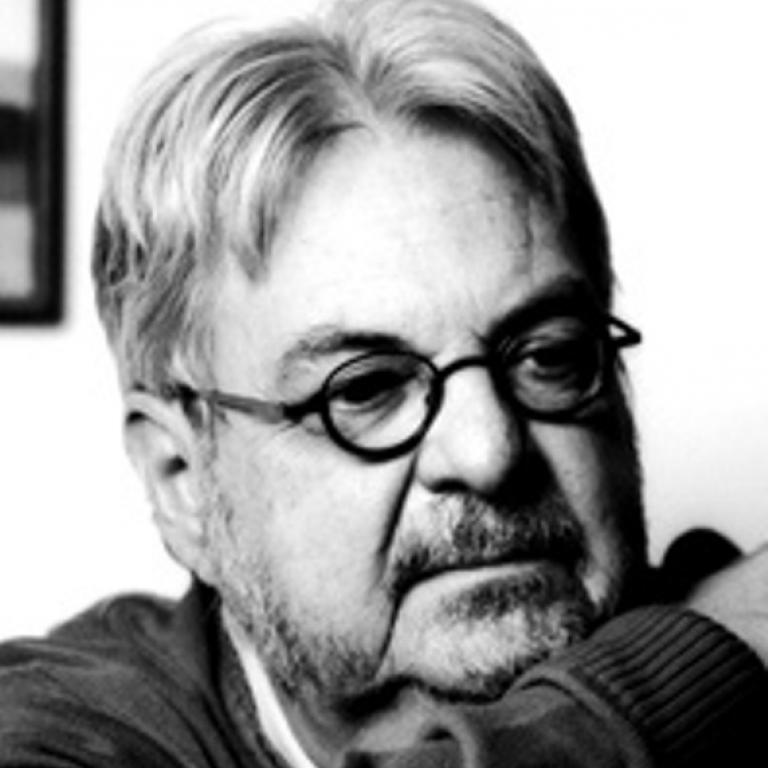
Do you know an inspiring Montrealer? Submit their application!
From 1963 to 1966, he worked as a linotype operator. In 1964, he submitted his play Le Train to Radio-Canada’s young authors’ competition, taking first prize. That same year, he met André Brassard, who would become the director of virtually all of his plays.
In 1965, André Brassard used tales from Contes pour buveurs attardés in a show devoted to fantasy literature: Messe noire. The same year, Michel Tremblay wrote Les belles-soeurs. The play was staged for the first time at the Théâtre du Rideau Vert in 1968 and was a smash hit. It would be restaged many times in Quebec and abroad. In 1973, it was presented by the Compagnie des deux chaises at Paris’s Espace Cardin, where it was acclaimed as the best foreign production of the season.
In 1972, Michel Tremblay and André Brassard turned their talents to cinema with the short feature Françoise Durocher, waitress, garnering them three Genies in Toronto. In 1972, Michel Tremblay wrote his first feature screenplay, Il était une fois dans l’est (Once Upon a Time in the East). The film, directed by André Brassard in 1973, was Canada’s entry at the Cannes Film Festival and the Chicago International Film Festival in 1974. Tremblay and Brassard created another feature film, Le Soleil se lève en retard (The Late Blossom), in 1976. Sainte-Carmen de la Main, Michel Tremblay’s most overtly political play, was staged in 1976. It was restaged in 1978 by the Théâtre du Nouveau Monde and was a huge hit.
Beginning in 1978, Michel Tremblay created a sprawling work of fiction Les chroniques du Plateau Mont-Royal, a series that included La grosse femme d’à côté est enceinte (The Fat Woman Next Door Is Pregnant) (1978), Thérèse et Pierrette à l’école des Saints-Anges (Therese and Pierrette and the Little Hanging Angel) (1980), La duchesse et le roturier (The Duchess and the Commoner) (1982) and Des nouvelles d’Édouard (News from Edouard) (1984). In 1986, he published more a personal work, Le cœur découvert (The Heart Laid Bare), followed by Le premier quartier de la lune (The First Quarter of the Moon) (1989) and in 1990, a work of non-fiction about the films that marked his childhood, Les vues animées.
Many of Tremblay’s plays have received international acclaim. Almost all have been published in English, including volumes of his Chroniques du Plateau Mont-Royal, Stories for Late Night Drinkers and The Heart Laid Bare. Michel Tremblay’s body of work includes 18 plays, two musicals, seven novels, a collection of stories, seven screenplays, 10 translations or adaptations of works by foreign authors and lyrics for a dozen songs for Pauline Julien, Renée Claude and Monique Leyrac. In 1990, he wrote the libretto for the opera Nelligan.
A six-time grant winner from the Canada Council for the Arts, Michel Tremblay has received some 20 awards and honours during his career. These include France’s Ordre des arts et des lettres, the Prix du Québec (Prix Athanase-David), the Grand Prix littéraire du Salon du Livre de Montréal in 1990 for Le premier quartier de la lune, which also earned him the Prix du grand public. He also received the Prix Victor-Morin from the Société Saint-Jean-Baptiste.
Michel Tremblay was inducted into the Academy of Great Montrealers in the Cultural category in 1978 and was named a Commander of the Ordre de Montréal in 2016.
Source: Board of Trade of Metropolitan Montreal, Ordre national du Québec
The picture and biographical information appearing on this page were current at the time this person was admitted to the Academy of Great Montrealers.